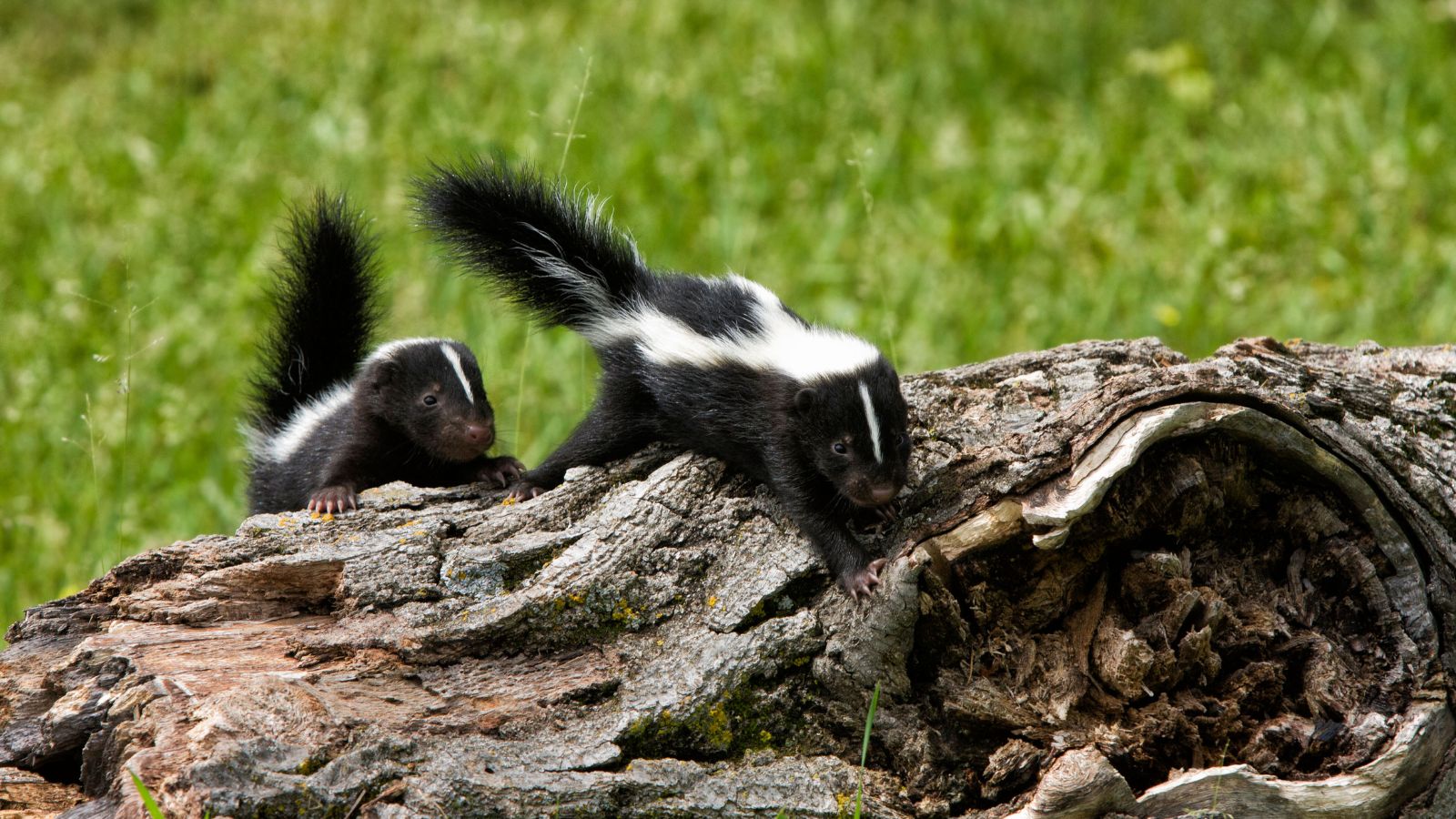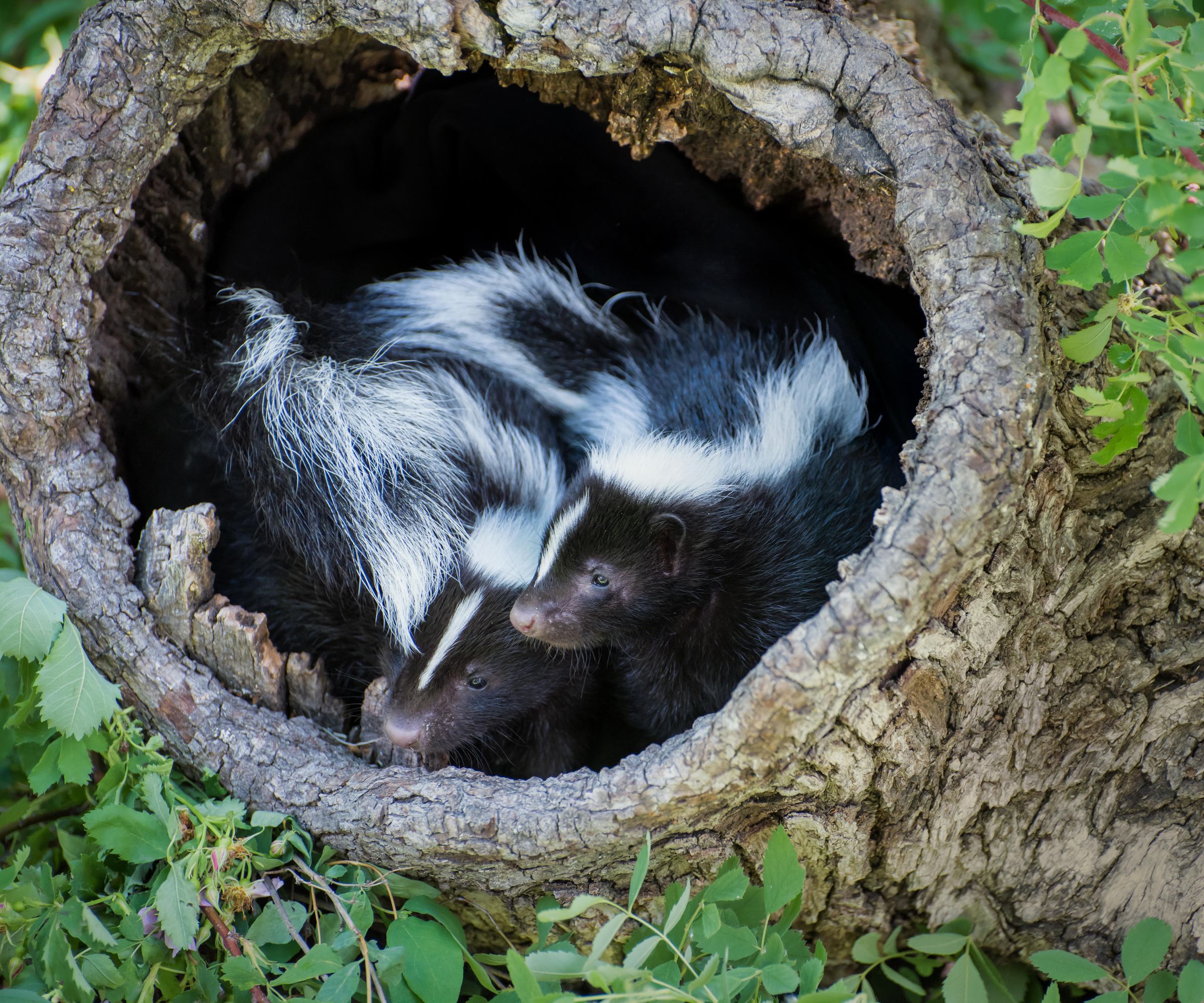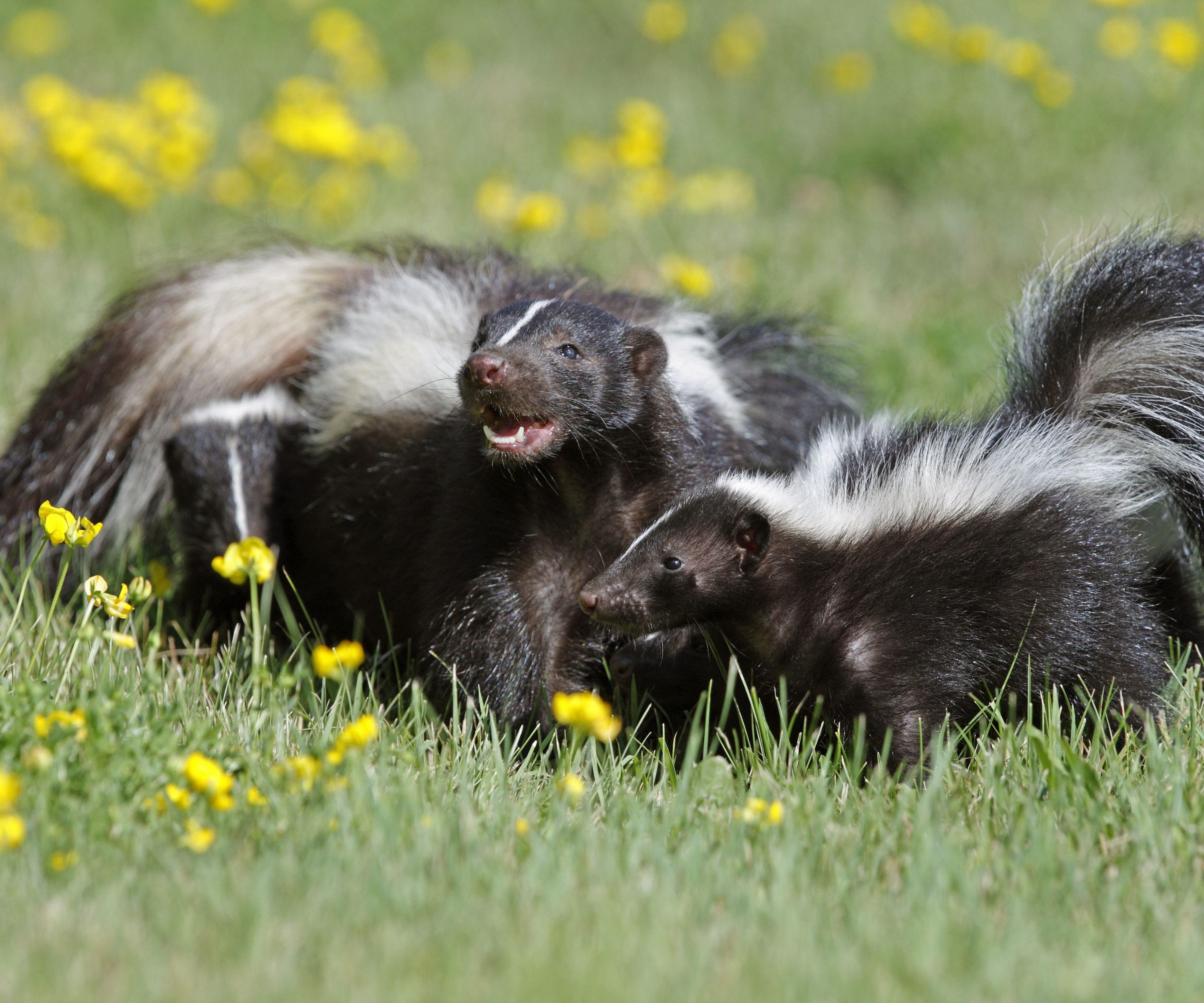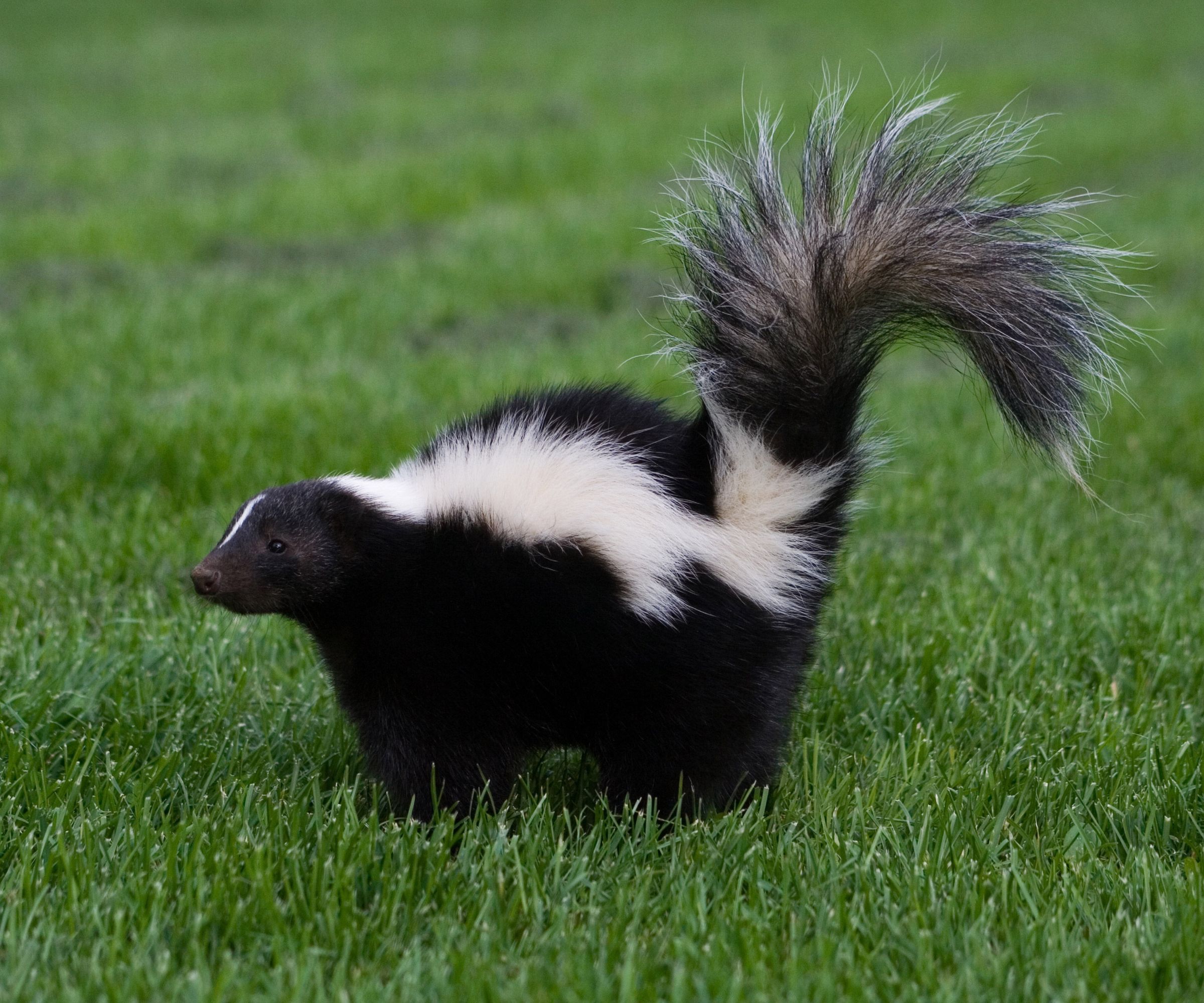How to get rid of skunks – protect your lawn and pets from these unwanted pests
Learn how to get rid of skunks from your property humanely with this comprehensive guide


Design expertise in your inbox – from inspiring decorating ideas and beautiful celebrity homes to practical gardening advice and shopping round-ups.
You are now subscribed
Your newsletter sign-up was successful
Want to add more newsletters?

Twice a week
Homes&Gardens
The ultimate interior design resource from the world's leading experts - discover inspiring decorating ideas, color scheming know-how, garden inspiration and shopping expertise.

Once a week
In The Loop from Next In Design
Members of the Next in Design Circle will receive In the Loop, our weekly email filled with trade news, names to know and spotlight moments. Together we’re building a brighter design future.

Twice a week
Cucina
Whether you’re passionate about hosting exquisite dinners, experimenting with culinary trends, or perfecting your kitchen's design with timeless elegance and innovative functionality, this newsletter is here to inspire
Skunks are timid animals and are often non-aggressive however they can quickly become a nuisance, especially if they become territorial. Learning how to get rid of skunks humanely is the best way to prevent yourself or your pets from being sprayed.
Although pest control is important, using inhumane methods to remove skunks from your yard is discouraged and may even be illegal in many parts of the world – much like getting rid of bats. When removing skunks from your land, ensure you check with your local laws first or, even better, hire a professional – especially if your skunk problem has gotten out of hand.
There are many ways to discourage skunks from setting up a home on your land, and many work to deter them once they have burrowed too. With so many methods using items you likely already have in your home, there is little reason to use lethal methods of removal. Here, we have explored how to get rid of skunks from your garden and beneath your property so that you can enjoy your backyard ideas in peace.
How to get rid of skunks
When you are learning how to get rid of skunks, it is important to make sure that skunks are causing your lawn problems in the first place. ‘You will most likely smell a skunk before you see them as they leave faint musky smells under buildings or in areas of the garden they have set up a home,’ explains Rachel Crow, garden editor for Homes & Gardens. ‘What’s more, you may see small, shallow holes in your lawn that result from the animals digging for food.’
If you see a skunk in your yard, there is little cause for panic. In fact skunks, much like getting rid of raccoons, are timid animals who will likely run rather than spray you.

How to get rid of skunks from your yard
1. Apply strong scents to repel skunks
Skunks have a delicate sense of smell and (much like getting rid of lizards) can be repelled easily by applying strong scents to your garden such as citrus or castor oil.
Distribute fresh orange and lemon peels around your garden for an easy solution to deter skunks from your yard, or alternatively spray a mixture of half a pint each of castor oil and dish soap diluted in one gallon of water around the boundaries of your yard.
Design expertise in your inbox – from inspiring decorating ideas and beautiful celebrity homes to practical gardening advice and shopping round-ups.
This method should be repeated several times, especially after rain, in order for it to be effective.
2. Remove their food source
Removing the food source of animals is a universal method for deterring pests such as skunks. Although this method can prove difficult, using things such as homemade bug sprays regularly and utilizing clever companion planting is a great way to discourage bugs that make great skunk snacks.
3. Consider installing a bright garden light
‘Skunk’s naturally timid nature means that bright lights, especially those on a motion sensor, can startle them and encourage them to move on,’ explains Rachel. What’s more, the nocturnal skunk’s eyes are sensitive, so bright lights can strain their vision, making staying in the area more unpleasant without physically harming them. Consider using floodlights in your outdoor lighting ideas to discourage a range of pests including skunks.
4. Clean up your yard
Skunks can find homes in overgrown bushes and shrubs, fallen logs, and other building materials. While skunks usually create homes in the form of shallow burrows, these features provide great shelter from the elements.
When cleaning up your yard and implementing your fresh landscaping ideas it is important to also consider removing trash and concealing or securing your waste bins so that skunks are not encouraged to forage for scraps.
5. Let your dog outside more
‘A great way to get rid of skunks naturally is by allowing family pets to explore the garden,’ Rachel continues. ‘Animals such as dogs scent the area and warn the skunk of a nearby predator, discouraging them from spending time on your property. Furthermore, a dog’s loud bark and boisterous activity can scare skunks away.’
If you do not have a pet, consider investing in predator urine from a garden center to mark your garden and discourage skunks.
6. Call a Professional
If these solutions do not work, it may be time to call a professional. Professional animal control experts will have the knowledge of the local law as well as the means to humanely remove and relocate mammals such as skunks through things such as traps.
How to get rid of skunks under the house or deck
If skunks have moved in underneath your house, deck, or shed, you can use the same methods as removing skunks from your garden or lawn. Make sure that trash is removed from underneath these areas and consider what may be drawing skunks to these areas.
For sheltered areas, consider blockading any gaps with mesh or chicken wire to prevent skunks from entering the area in the first place. When realizing your deck ideas, it is good practice to enclose the space underneath to prevent a whole range of animals from making their homes beneath it.
Of course, this does not work when the skunks are already under the house or deck, so try to draw the skunks out using the previous methods before securing your property.

How to get rid of skunk smell
The skunk smell is incredibly difficult to get rid of, and can often be smelt a significant distance away. If you are sprayed by a skunk, wash your clothes as soon as possible with laundry detergent to replace the putrid smell.
To remove the skunk smell from skin or animal fur, combine one quart 3% hydrogen peroxide, ¼ cup of baking soda, and one to two teaspoons of liquid dish soap and apply to the sprayed area only. You should thoroughly wet the affected area before application and the solution should be left on the skin or rubbed into the fur for around five minutes. Rise with water and repeat until the scent is no longer present.
It is important to dry the area naturally using a towel or allowing it to air dry as using heat such as from a hair dryer could set any remaining skunk scent into the skin or fur.
If this method dries out your skin, use a good quality moisturizing wash to replenish your skin barrier and help to mask the scent.

How to prevent skunks
Much like getting rid of moles, skunks are attracted to your garden for it’s bounteous food sources. One of the best ways to prevent skunks is to treat garden pests to make your yard an unfavorable location to set up a home. ‘For smaller areas, it may be worth investing in good fencing, particularly for your vegetable garden ideas.’ Rachel suggests.
To prevent skunks from settling underneath your deck or shed, seal off gaps with chicken wire, leaving around one foot of wire across the ground to prevent skunks from tunneling under.
Do skunks go away on their own?
Skunks will naturally leave your property on their own when given time if they have not established a home in your yard. Skunks are timid animals and can frighten easily, so they are unlikely to settle in your area if you a frequently out in the garden or have pets such as a dog to deter them.
If a skunk does take residence on your land, however, they will be less likely to leave on their own accord and may need encouragement if they bother you.
What is the best skunk deterrent?
One of the best skunk deterrents is citrus peels. Skunks, along with many other garden creatures, are repelled by citrus smells such as orange and lemon, so placing these around your garden should deter skunks from making a home on your land.

Chiana is Homes & Gardens’ kitchen appliances editor. With a lifelong passion for cooking and baking, she grew up experimenting in the kitchen every weekend with her baking-extraordinaire Mom, and has developed a great understanding of how tools and appliances can make or break your ideal relaxing kitchen routine.